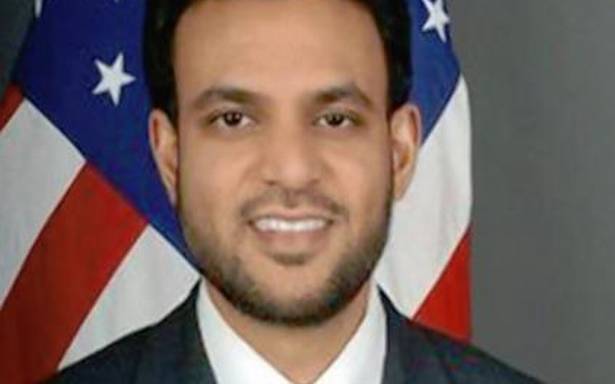China is one of the worst abusers of religious freedom in the world, says Rashad Hussain
The Senate Foreign Relations Committee held a virtual confirmation hearing for Indian American Rashad Hussain for the post of Ambassador at Large for International Religious Freedom (IRF) on Tuesday. Several other Biden administration nominees were being heard during the same session. If confirmed, Mr. Hussain, whose parents are from Bihar, would be the first Indian American and Muslim to head the State Department’s office of IRF.
During the hearing, Mr. Hussain, a 42 year old attorney, spoke of his background in working to protect minorities, especially in Muslim majority countries, and committed to increase efforts to hold China accountable for its oppression of Uighurs, saying the country was one of the “worst abusers of religious freedom “ globally.
“China is one of the worst abusers of religious freedom in the world. I’ve visited Xinjiang province and I’ve seen firsthand China’s blatant disregard for the Uighur community, their oppression via the genocide that’s occurring there, and for their disregard of human rights toward a number of religious communities, including the Tibetan Buddhist Protestants, Catholics and Falun Gong,” Mr. Hussain said.
The Trump administration had made a determination that China was committing genocide against the Uighurs, a determination that the State Department under the Biden administration has upheld.
“I will also leverage my existing relationships with Muslim majority countries to protect the rights of religious minorities there,” Mr. Hussain said during his opening remarks. Mr Hussain served as the U.S.’s Special Envoy to the Organization of Islamic Cooperation (OIC) during the Obama administration.
In response to a question from Maryland Senator Chris Van Hollen (Democrat) on how the State Department’s IRF office would factor in recommendations for classifying countries according to religious freedom based on the recommendations of the U.S Commission on International Religious Freedom (USCIRF), Mr. Hussain suggested he would make those inputs part of the policy process in the department. Mr Van Hollen noted that there have been discrepancies between the USCIRF categorisation and the Sate Department’s own list.
“We will look at all of the data they provide and combine it with our research and our assessments, and will advocate vigourously within the Department of State to use every tool at our disposal, including, when appropriate, designations as ‘Countries of Particular Concern’ by making those recommendations as part of the policy process within the State Department,” Mr. Hussain said.
The USCIRF is an independent bipartisan committee that advises the executive branch of government on the state of religious freedom in different countries. They make recommendations to classify countries accordingly – including as ‘Countries of Particular Concern’ , the lowest grade for religious freedom. USCIRF has recommended that India be downgraded to CPC status in its April 2020 and April 2021 reports, but the State Department under the Trump administration had not put India on its CPC list. India has said that USCIRF does not have locus standi to make such pronouncements.
Source: Read Full Article

